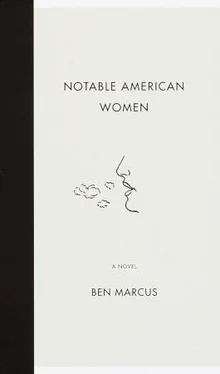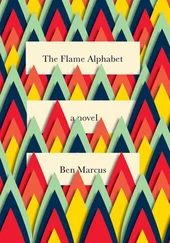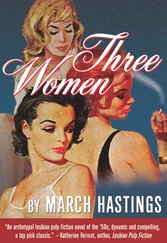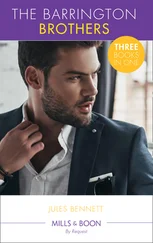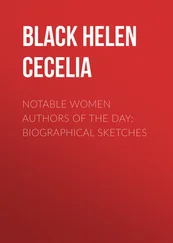We were all shushing, until it was a slow, steady hiss as plain as traffic. There had never been so much wind in that room, but no one was dying. My mother’s smile almost seemed real. She looked like me, and I wanted to remember her. I tried to move toward her, but Dark held me close on her lap, digging her fingers into my hip creases so that I could only reach with my arms, and as I did so, my mother tilted away just slightly, as if a bug were too near her face.
Everyone laughed when my father came into the kitchen, a synchronized laughter that seemed planned, breaking up the steady hissing with hiccups of silence, so that laughing seemed like a fast argument between silence and hissing. My father’s body looked small in the room. He was one of those fathers who died in a crowd. He tried to laugh and return the smile of these women he had never seen, but his face wasn’t in it; it could not follow the command. I saw it slide down into a plain, father’s face, a father who has a question or who is just resting his face in between times that mean something. The laughing smothered him, until he cast his head down at his feet to hide it, but his eyes stayed looking up at us, right under his eyebrows.
He was all messed about and dirty, rolled in soil. His shirt was torn and he had gotten too much sun on the sillier part of his face, as if he had fallen asleep curled up. What little hair he had was flattened and side-mounted up his face.
The women kept laughing, and Dark held me tighter. I pushed down into her lap and felt something poking at me. I looked at my mother. Her pencil was poised, but she was not writing. She was an accurate statue of a mother: so much detail, as if someone had made her. Her face was set in its control position.
My father tried my name out in the air, but the women would not stop laughing at him.
“Let’s go now, Ben,” he said. “Come on out here with me for a minute.”
He shifted in the doorway, cheating his body out of the room, hinting how I should follow him. I could barely hear him over the laughter, but I saw him fading from the room, and it pulled on me.
Someone pushed my own hand toward my mouth. My father did not look at the women, only at me, and I saw his little mouth practicing my name so he wouldn’t forget it, his eyes making no argument at all for anything. I wished my name were bigger and longer and louder in the room, so that my father would have something more important to say. Anyone could say a name like mine and nothing would change. As I tried to scoot off Dark’s lap and go to him, she squeezed me harder, until it came from somewhere deep in my legs, a dry engine sound like rushing water. The laughing stopped, and it was only me in the room, the women squeezing my belly, one of my own fingers held up over my lips in the gesture of silence. The shushing posture. A universal signal for quiet. Directed at him in the doorway.
I looked right at my father and they squeezed me hard, triggering my hiss from deep inside me.
Nothing sounded. I bloated harder in my face, resisting their squeezing. The room was failing from sight.
“Ben?” my father asked again, and the word sounded like an apology a man might make before he died.
And that’s when I could no longer hold the sound in. It poured out of my body hard and solid as water, a shushing that washed over my father and sank him.
There was no longer room for my father in that company— the room was allergic to his body and he would not be lasting long there. The women looked pleased by the suspense. My mother was suppressing a smile, her hand on her mouth, teeth shining through her fingers. Everyone regarded my father’s little body faltering at the doorway as he took it in, until he backed out of there with small, chipped steps, looking down as he went.
Several of the smallest girls raced one another, giggling, to be the first to shut the door after him.
It was to be my father’s last appearance in the house.
There was no thunder when Pal finally died. I had already forgotten about him. The sky did not look capable: too quiet, too weak, too far away to make any kind of sound we could hear. I found Pal in my room, crumpled in the corner like laundry. The toppled water jar against his mouth did not reflect any breath. Nor did my quick, hard kicks yield any flinches from his form. I touched his lips with some early sweet water he and I had made together, but his mouth was dry and finished. I poured a trickle of the forgetting water on his dry little head. Maybe he had died of memory. Maybe his feelings had caused an inner bursting. Maybe he had died of our house.
He was easy to pack in a bag. Just a bony container of hair. I stuffed him in and hauled him out of there, clomping down the stairs and limping into the field, glad to have so much to carry and somewhere to go, an errand elsewhere.
I exaggerated Pal’s weight by plunging deep in my steps and miming gestures of great strain. I did the hernia walk. I panted, stopped, scanned the horizon, rubbed my muscles as if they ached. Several women were about their tasks, applying stethoscopes to the soil, but it was only Jane Dark who saw me lugging my product, Pal’s bones jabbing through the bag at my back. I had not seen her with Pal for some time. Much was different from the words she had used. If Pal was a bomb, he was now defused. You killed my man, I thought. He died alone. You should die by thunder. You should be killed in a loud sky. Let your house break in half and the people inside it be pulled into the sky. Let you faint at night. Let your feelings drown you. Let my father return from the earth to hurt you with sound. She flipped down the goggles from her helmet and crouched in my direction, but if she guessed what I had in my bag, she showed no interest at all. Let you drive off in your truck. Let you never have come.
I left the compound, tracking through dried grass until there was no more growth on the earth at all, just water, me, and Pal.
The pond was long and clean that day. Water ran in patchy sheets occasionally scored by wind. I could see just enough of my house in the distance, a shelter looking more like a sharp hole someone had torn in the horizon, pulsing with light, as if it might break open. For a moment, I forgot what was in the bag. It could have been anything, and I could simply have been a man that day visiting a thin stretch of water visible from his house. I had come a distance to do a job. That almost seemed to be enough. I had a bag of something, and would be returning home without it. But when I touched the hard bones, and felt the flat, plain face that once fit perfectly against the curve in my back, I knew whom I carried and what I had come to do.
No ceremony was necessary, no small words. I stepped up to the waterline and set the bag twirling over my head until its speed was sufficient to launch it well away from me over the pond. But I did not release it. The bag hummed in my hands until my arms were pulled taut, and I clutched it harder as the speed increased, feeling it drag my weight off the ground. I was not ready to let it go. I wanted true flight for this bag, not just an adequate throw, enough to send Pal deep into the water, plunging past the easy top layers into the true deepness, where a bolt of cold ocean water feeds the pond from below, where even a dead person might have his bones sucked through the backwash and out into the great wide ocean beyond, little bullets sent to sea. Pal deserved something more, even if I wasn’t the person to give it to him. But I would try for him as if it were me in the bag, looking out through the mesh holes at the spinning world, cycling through trees and sand and water and sky as I flew, until the water hit me like a wall and I could take a final break from the labor of breathing.
I twirled yet harder, until my arms ached, and then finally let my hands go, listening to the wind rip against the bag as it flew over the learning pond, where I had never buried anyone before. Pal could have been anybody up in the air, launched over the pond. My first body. My first throwing of a dead friend. I wished I were at my own window watching it all so I could remember it better, so that I could instantly faint it deep into my body. I would try to breathe less on my return home. I would try to swallow the feeling in my chest until it glowed in my bones.
Читать дальше
